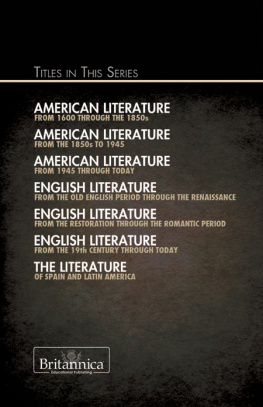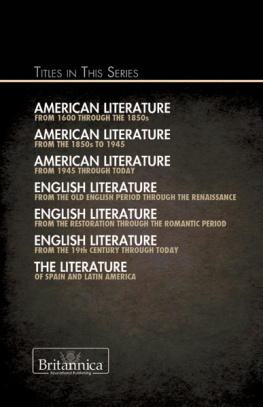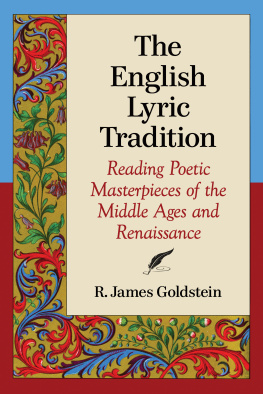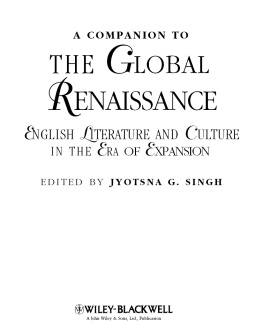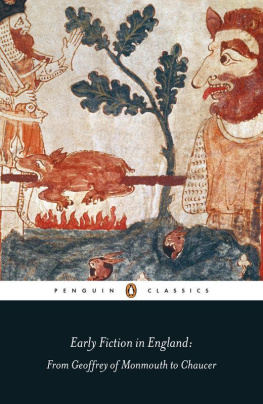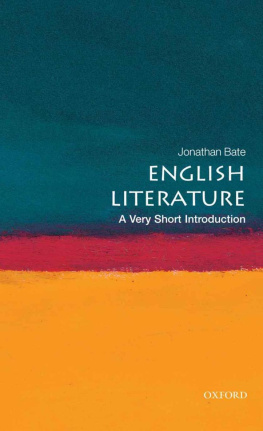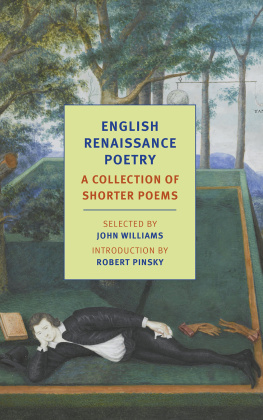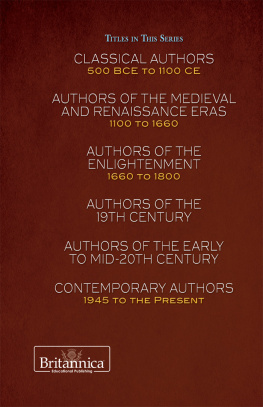ENGLISH
LITERATURE FROM THE OLD ENGLISH PERIOD THROUGH THE RENAISSANCE
THE BRITANNICA GUIDE TO WORLD LITERATURE
ENGLISH
LITERATURE
FROM THE OLD ENGLISH PERIOD
THROUGH THE RENAISSANCE
EDITED BY J.E. LUEBERING, MANAGER AND SENIOR EDITOR, LITERATURE

Published in 2011 by Britannica Educational Publishing
(a trademark of Encyclopdia Britannica, Inc.)
in association with Rosen Educational Services, LLC
29 East 21st Street, New York, NY 10010.
Copyright 2011 Encyclopdia Britannica, Inc. Britannica, Encyclopdia Britannica, and the Thistle logo are registered trademarks of Encyclopdia Britannica, Inc. All rights reserved.
Rosen Educational Services materials copyright 2011 Rosen Educational Services, LLC. All rights reserved.
Distributed exclusively by Rosen Educational Services.
For a listing of additional Britannica Educational Publishing titles, call toll free (800) 237-9932.
First Edition
Britannica Educational Publishing
Michael I. Levy: Executive Editor
J.E. Luebering: Senior Manager
Marilyn L. Barton: Senior Coordinator, Production Control
Steven Bosco: Director, Editorial Technologies
Lisa S. Braucher: Senior Producer and Data Editor
Yvette Charboneau: Senior Copy Editor
Kathy Nakamura: Manager, Media Acquisition
J.E. Luebering: Senior Editor, Literature
Rosen Educational Services
Jeanne Nagle: Senior Editor
Joanne Randolph: Editor
Nelson S: Art Director
Cindy Reiman: Photography Manager
Matthew Cauli: Designer, Cover Design
Introduction by Rebecca Carranza
Library of Congress Cataloging-in-Publication Data
English literature from the Old English period through the Renaissance / edited by J.E.
Luebering.1st ed.
p. cm.(The Britannica guide to world literature)
Includes bibliographical references and index.
ISBN 978-1-61530-230-7 (eBook)
1. English literatureHistory and criticism. 2. English literatureOld English, ca. 4501100History and criticism. 3. English literatureMiddle English, 11001500History and criticism. 4. English literatureEarly modern, 15001700History and criticism. I. Luebering, J. E.
PR83.E62 2010
820.9dc22
2009047904
On the : William Shakespeare (foreground) and Geoffrey Chaucer are two of the most recognizable and important luminaries of early English literature. Oli Scarff/Getty Images (Shakespeare); Hulton Archive/Getty Images (Chaucer)
On page : A stained glass window depicting printer William Caxton as he presents his first printed page to King Edward IV and his queen. Ernest Heimann/Hulton Archive/Getty Images
Pages (books) www.istockphoto.com.
CONTENTS

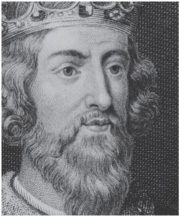
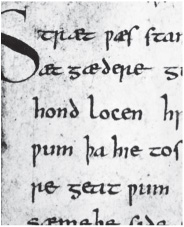
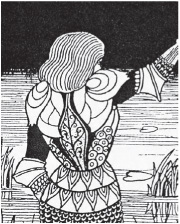

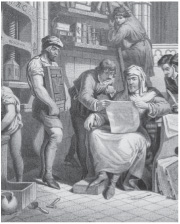
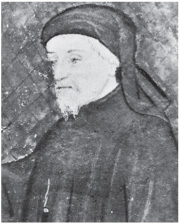
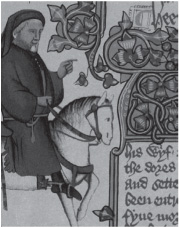

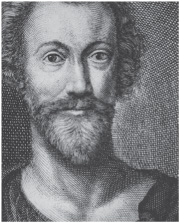
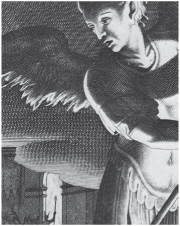
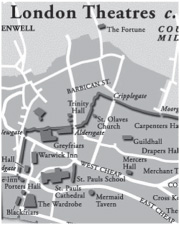

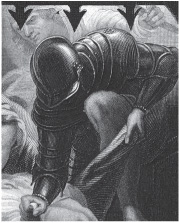
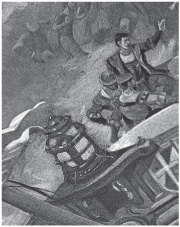
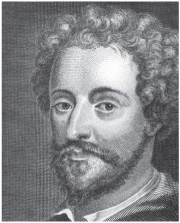
INTRODUCTION

P erhaps the best way to start appreciating early English literature is to not think of it as literature at all. The earliest stories in the English language were not written for academic study but as an extension of the oral tradition of relating grand and fanciful tales for entertainment. These stories, then, were the blockbuster summer movies of their day--tales of adventure and romance, with brave knights, beautiful women, horrible monsters, and mysterious spirits.
Over the centuries these stories became a part of English literature, and along the way, the gripping manner in which they were told made the leap from word of mouth to the page. This book will show how that transition was made as it takes you on a journey through time and literary development.
To study English literature from the Old English period to the Renaissance is to witness the movement from one-dimensional action stories and religious lessons to stories with more subtleties of plot and character development and the development of language usage from simple conventions to new uses of sound and meaning. In short, this period began the rich tradition of English literature that continues to grow today.
Tracing when exactly this evolution started involves an element of mystery. Because there was no formal publishing as we know it today, the exact dates when many important works of early English literature were written are not known. Some dates can be estimated based on what is known about the life span of the author, while others can be placed in history according to their references to significant events. In general, the Old English period is considered to extend from the 7th to the 11th centuries.
These dates are significant because of the tumultuous history of England during this time. Various waves of invaders brought different languages and cultural traditions to the island, so the original language of the inhabitants was enriched by Germanic and Norman influences, as well as by the Latin used extensively by members of the clergy.
Next page
